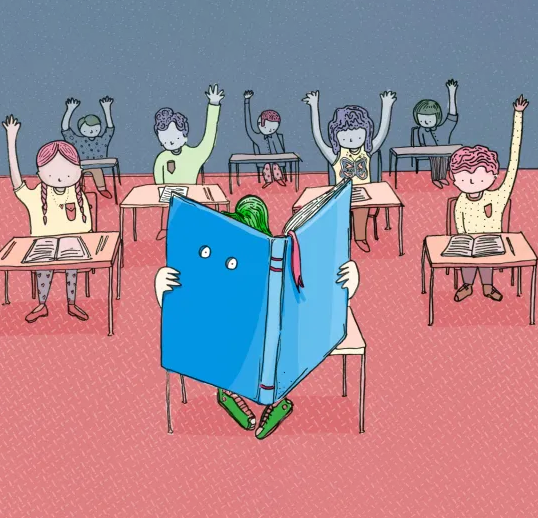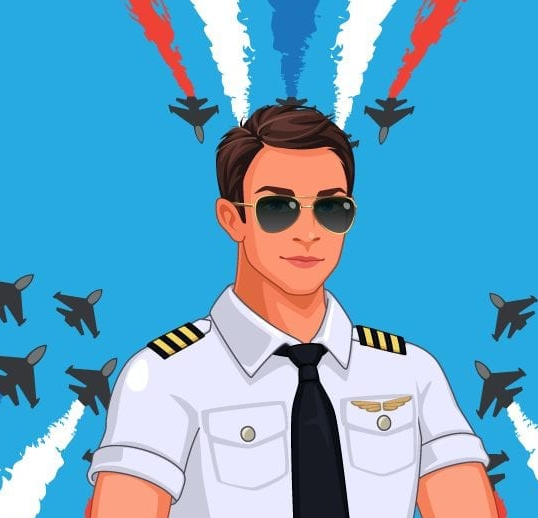

Lakshya was always the quintessential introvert. As a child, he was more comfortable with the company of books or ants and pigeons than people. Conversations felt like intricate mazes, and he preferred the quiet hum of his thoughts to the cacophony of social gatherings. He grew up in a small rustic town in Eastern Assam called Tinsukia which had its own old-world charm, excelling in academics but shrinking away from debates, and group activities—anything that required more than a polite nod or a murmured “Good Morning.” Teacher and his classmates used to make fun of him and he used to go more into his shell by this but never complained.
When he graduated from college with a degree in engineering, he joined the Indian Air Force and had never thought that the world of Helicopters would be his haven. The logic of patterns and machines made perfect sense and he loved them as they didn’t judge him for being awkward. But life, as it often does, had other plans.

Lakshya landed his first major assignment when he was sent to the USSR along with a small team to get trained in MI 8 helicopters. On his first day, he was greeted by a swarm of Indian and Russian colleagues, all eager to bond over coffee breaks and know more about each other, Bollywood films. His section head, a gregarious man named Kumaran, emphasized the importance of teamwork and communication. “Here at Base repair depot, we value collaboration as much as innovation,” Kumaran declared, clapping Lakshya on the back. Lakshya’s stomach churned.
The first few months were a blur of intensive training, group projects, and after-work hangouts. He did his best to stay in the background, speaking only when absolutely necessary. But soon, he realized that his introversion was holding him back. While his extroverted colleagues dazzled the higher-ups with their presentations and oratory skills, Lakshya’s quiet contributions often went unnoticed.
One day, during a team meeting, Kumaran asked for volunteers to lead a presentation on the technical aspect of MI 8. Lakshya’s heart sank as his colleagues’ hands shot up enthusiastically. He wanted to fade into the chair, hiding himself, but Kumaran’s eyes landed on him. “Lakshya, you’re up for it, right?”
Before he could protest, Kumaran continued, “You’ve done a fantastic job on the backend passing all tests with flying colors during the training. Who better to explain it?” The room was silent, all eyes on him. Lakshya was trembling with fear and a little excitement and nodded reluctantly, his mind racing with dread.
That night, Lakshya sat in his tiny barrack room, staring at his notes. He had never been good at public speaking. His voice had a habit of betraying him, quivering like a leaf in the wind. But this wasn’t just about one presentation; it was about his career. If he wanted to succeed, he needed to adapt. He could not afford to betray his senior’s trust.
He started researching for overcoming introversion in the workplace and talking to a few close friends at the barracks. He stumbled upon a book in the library by a self-proclaimed introvert who had mastered the art of public speaking. The speaker’s advice was simple: create a persona. “Think of it as acting,” she said. “You don’t have to change who you are, but you can channel a more confident version of yourself when needed.”
Lakshya decided to give it a shot. He practiced his presentation in front of the mirror, imitating the confident demeanor of his extroverted colleagues. He even gave himself a pep talk every morning: “You’re not Lakshya, the shy guy. You’re Lakshya, the rockstar presenter.” His friends also supported him.
Sasha, one of the Air Force officer’s daughter, who was doing her research in Chemistry was always impressed by handsome Lakshya’s simplicity and intelligence and was eager to chat with him but Lakshya could at most say “Hi” without any eye contact and walk past hurriedly. Sasha was a beautiful lady and many of the trainees wanted to be with her but she had her eyes only on Lakshya. She used to visit the library a lot and used to find Lakshya immersed in books . She managed to break the ice and befriend him. She took it upon herself to help Lakshya in his pursuit. She was his audience and gave him constructive feedback and helped boost his confidence. They came close to each other.
On the day of the presentation, Lakshya walked into the conference room with a newfound determination. He was sad that Sasha could not join and she had assured him that all will be well. His colleagues looked surprised to see him take charge and Kumaran was tense. Lakshya started speaking, and to his amazement and every colleague's surprise, the words flowed smoothly. He had rehearsed so thoroughly that he could anticipate every question. When the presentation ended, the senior Air Force personnel applauded, and Kumaran gave him a thumbs-up. Lakshya’s colleagues congratulated him, saying things like, “We didn’t know you had it in you!”
That moment was a turning point. Lakshya realized that he didn’t have to be an extrovert to succeed; he just had to learn to play the part when necessary. Over the next few months, he continued to build his “extrovert facade.” He started actively participating in team discussions, volunteering for challenging assignments, and even cracking the occasional joke during meetings. His sense of humor was dry and self-deprecating, often leaving his colleagues in splits.
One time, during a brainstorming session, someone suggested a far-fetched idea. Lakshya quipped, “Sure, and while we’re at it, let’s invent time travel.” The room erupted in laughter, and Lakshya realized that humor was his secret weapon. It allowed him to connect with people without stepping too far out of his comfort zone. Sasha also agreed with him and suggested him to explore and challenge himself.
But maintaining the facade wasn’t easy. There were days when Lakshya felt drained, longing for the solitude of his old life. He would retreat to the office terrace during lunch breaks, sipping tea and recharging in silence. He also confided in his new found friend, Sasha, who understood his struggles and offered words of encouragement.
“You’re doing great,” Sasha said one evening. “But don’t forget to stay true to yourself. You don’t have to be someone you’re not.”
Lakshya nodded. “It’s not about changing who I am. It’s about adapting to survive.”
His training at Moscow was completed and he had to come back to India. He and Sasha bid good bye to each other and he took his flight back home promising to stay in touch with her.
Over time, Lakshya’s hard work paid off. His colleagues began to see him as a leader, someone who could not only deliver results but also inspire others. He received promotions and accolades, but what mattered most to him was the respect he had earned. He was considered to be “ the MI 8 Expert” and his expertise was appreciated by trainees and Air Force Officials who needed advice on the Helicopter which quickly had become the logistic support system helping during war and peace time activities. He had struck a balance between his introverted nature and the extroverted persona he projected at work.
One day, during the Air Force Golden Jubilee Celebration at the Helicopter Unit, the commodore announced Lakshya was chosen to receive the President’s medal for his excellent service to the force . “Lakshya is proof that you don’t have to be the loudest voice in the room to make an impact,” Kumaran, who was now the Commodore, said. “His dedication, creativity, and ability to step out of his comfort zone are truly inspiring.”
As Lakshya walked up to the stage to receive his award, he thought about how far he had come. The shy boy who once dreaded conversations had transformed into a professional who could hold his own in any setting. But deep down, he was still the same Lakshya—someone who cherished quiet moments and found joy in the simple things. He suddenly remembered Sasha after so many years.
After the ceremony, a young colleague approached him. “Sir, can I ask you something? How do you manage to be so confident? I’m an introvert, and I’m struggling to fit in.”
Lakshya smiled. “Confidence isn’t about being the loudest or most outgoing. It’s about believing in yourself and your abilities. And if you’re nervous, remember this: it’s okay to act confident until you feel it. Everyone’s faking it to some extent.”
The colleague looked relieved. “Thanks, Sir. That means a lot.”
As Lakshya watched him walk away, he felt a sense of fulfillment. He had not only succeeded in his career but had also become someone who could inspire others. And that, he realized, was the true measure of success. He had to share the news with his best friend Sasha. The next morning, he got in touch with the Indian Air Force training base in Moscow and asked a friend to get in touch with Sasha and share his number with her. His friend called him at night and told that Sasha had passed away a few months after he had left. She was suffering from cancer but never disclosed that to Lakshya and her dad told that she had his photo next to her bed always and had requested her dad and others not tell him about it as she did not want him to lose his new gained confidence and success. Yes, she was in love with him. Tears rolled down Lakshya’s eyes and he was back in his shell, upset with himself for not getting in touch with her after his training. He remembered the days he spent with her and how she was always proud of him when he himself wasn’t sure of himself.

He always wanted to tell her that he loved her but could never manage to, fearing he would lose her friendship which he valued a lot.
Just then he heard a car honk and saw Kumaran waving at him downstairs. His boy came running to him and Lakshya went down and Kumaran told him that a few Mi 8 were grounded in Sri Lanka and he is needed. Lakshya regained his composure and smiled to his mentor and said he would be ready and meet him at the base with his backpack. Like a true soldier, Lakshya bid farewell to his loving wife and boy and left for Sri Lanka to take on the new challenge.